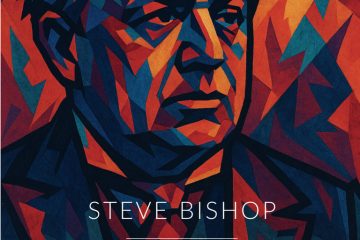It was a very good evening last night. Justin Brierley interviewed Andrew Bunt and Charlie Bell on one of the burning issues of the day. Is a practising, gay lifestyle compatible with biblical teaching?
I thought the tone and the content were excellent. Justin was gracious, as always, and both Andrew and Charlie debated in a warm and civil manner. It was wonderful to behold.
I wanted to raise some questions but I decided it would take too long to explain my interest in Epicurus (341-270 BC) and Aristippus (435-356 BC). Am I a sad loser? Probably.
I am not talking here about ancient Greek footballers but influential Greek philosophers. Today we are witnessing a revival of the Epicurean way of life and it illumines all discussions about sex and how we understand sexuality. Scholars like N.T. Wright and Catherine Wilson are helping us to understand the pervasive Epicurean worldview.
Here is my brief, pithy outline of these two influential boffins: Epicurus and Aristippus. Understanding their worldviews can help us think about sex.
While Epicureanism today is often understood to refer to a person’s refined appreciation of ‘posh nosh’ and sophisticated, fine wines, we need to dig deeper.
Epicurus rejected the platonic belief in immortal souls and invisible, spiritual realities. Epicurus taught that the basic constituents of the world are atoms, uncuttable bits of matter, flying through empty space and he attempted to explain all natural phenomena in atomic terms. He was inspired by Democritus (460-370 BC) who was one of the first materialist thinkers to be born. It is worth noting that Plato wanted to burn all of Democritus’ books. Friends they were not.
It was this theory of reality (atomistic materialism) that inspired Epicurus’ ethical teaching. For Epicurus the worst pain is fear. Fear of death and hell, he believed, causes a huge amount of anxiety and misery in the lives of Greek citizens who feared the gods e.g. Zeus. So he writes: “Nothing to fear in Death; Pleasure can be attained; Pain can be endured.”
Epicurus taught his disciples that when we stop fearing death, we must turn to enjoy a life of happiness. Only physical stuff is real and this means that we must focus upon enjoying our lives in the here and now. For Epicurus this means a life of moderation and self-control. Epicureans seek tranquility (ataraxia) and this will lead to the blessed life. We chat amiably in delightful gardens, enjoying clever banter, philosophical musings and the occasional glass of sherry. Epicureans were ‘secular’ peeps who live as if there is no God, soul, or judgment day. They did believe in gods but these gods had no interest in human affairs. Epicureans ignored God and the gods. Sound familiar?
Notice that this contrasts strongly with Aristippus who urged his disciples to engage in full-on, unrestrained, ‘blow out’ hedonism. Aristippus was an evangelist for the ‘wine, women and song’ way of life. It is foolish to delay any cravings for pleasure taught Aristippus. So live wildly and in the moment. The book Hellraisers by Robert Sellers tells the outrageous stories of Richard Burton, Peter O’Toole, Richard Harris and Oliver Reed. These men were followers of Aristippus rather than Epicurus. Their sexual shenanigans were rampant and they consumed vast quantities of wine and other alcoholic beverages. In 1974, Reed and 36 rugby players went through 60 gallons of beer, 32 bottles of Scotch, 17 bottles of gin, four crates of wine and a solitary bottle of Babycham!
The profound materialism of both Epicurus and Aristippus gives rise to social contract theories (e.g. Locke) in which governments arise through the actions of lonely, naked, solitary individuals. At the end of the day there are only individual, physical things and persons. These individuals crave material sensuality and satisfaction because only physical stuff is real.
Today many western people follow Epicurus and Aristippus without knowing why. For some their tranquility is sacred. For others their carnal pleasures are sacred. We could call these people unreflective materialists. Materialism is a broad church embracing both sophisticated aesthetes and pub brawlers.
How does this illumine our discussions about sex?
Andrew Bunt pointed out that western culture is obsessed with sex and satisfying our sexual desires is perfectly normal. He explained that Jesus lived an abundant life while remaining chaste. Understanding the revival of Epicureanism can help us to dig deeper into this debate about sexuality and the Christian faith. Understanding the Epicurean worldview is vital for both mission and discipleship.
- UCB Interview with Vicky Gibbens - January 28, 2026
- The Story of Fred Lemon who met Jesus and Two Angels in Prison - November 26, 2025
- The Inspiring Story of Abraham Kuyper (1837-1920) - October 22, 2025



3 Comments
Hugh · February 8, 2023 at 8:42 pm
Sex. Sex. Sex. It’s always the same with you, Mark! Well, actually that’s not true, because sometimes it’s champagne football, and your insightful analysis of Leeds United, or perhaps the delights of a cold pint on a warm summer’s evening. Not full on hedonism with Oli Reed, or total tranquility with Epicurus, but somewhere in the middle… on a narrowboat, perhaps, with swans, and a gentle breeze. But that doesn’t make us materialists! We can enjoy the wonders of the good life, whilst still loving a good God who delights in his children! Modern Epicurean experience seems to have little to offer, so why do you think so many people turn to it?
Mark Roques · February 9, 2023 at 10:14 am
Good question Hugh. Epicureanism is a broad church but it shapes universities, schools and the media in all kinds of ways. Deep down the vast majority of western people follow the doctrines of Epicurus because so many leading public boffins share this faith. Think about Hobbes, Hume, Darwin, Freud, Dawkins etc. There are about 130 universities in the UK and they are all promoting various forms of Democritus, Epicurus and Aristippus.
Andy Lancaster · February 10, 2023 at 11:48 am
Thanks for sending this Mark, it’s very practically helpful in so many ways. Always enjoy chatting, have a blessed day.’, Andy.’
Comments are closed.